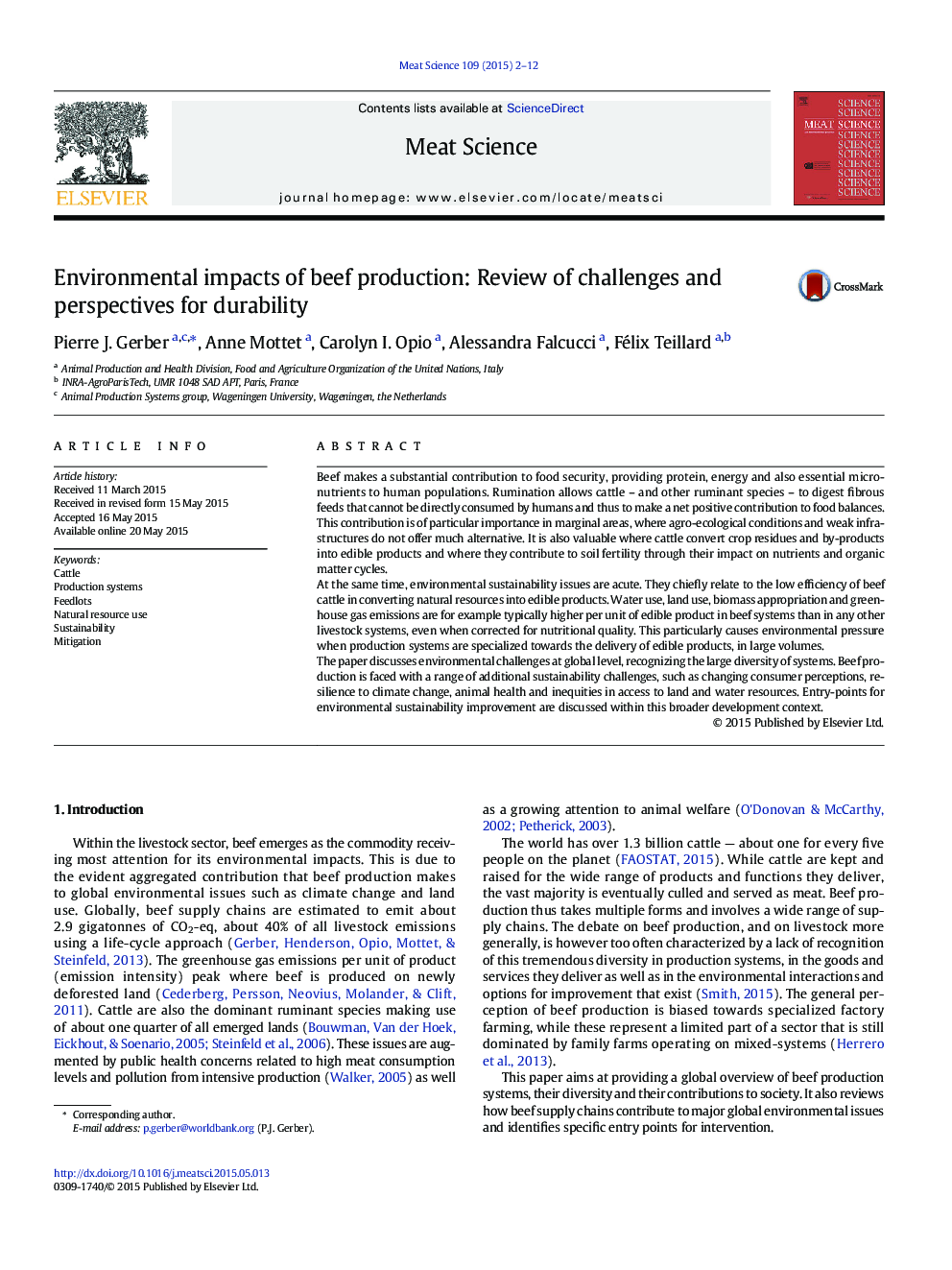| Article ID | Journal | Published Year | Pages | File Type |
|---|---|---|---|---|
| 2449653 | Meat Science | 2015 | 11 Pages |
•Beef often has a greater impact per unit of output than other animal commodities.•Large diversity in production systems, producing a range of goods and services•Cattle is the main option to sustain communities in harsh climatic conditions.•Environmental interventions need to address diversity and broad development issues.•Resilience, efficiency and net impacts are key entry points in pastoral, mixed and feedlot systems, respectively.
Beef makes a substantial contribution to food security, providing protein, energy and also essential micro-nutrients to human populations. Rumination allows cattle – and other ruminant species – to digest fibrous feeds that cannot be directly consumed by humans and thus to make a net positive contribution to food balances. This contribution is of particular importance in marginal areas, where agro-ecological conditions and weak infrastructures do not offer much alternative. It is also valuable where cattle convert crop residues and by-products into edible products and where they contribute to soil fertility through their impact on nutrients and organic matter cycles.At the same time, environmental sustainability issues are acute. They chiefly relate to the low efficiency of beef cattle in converting natural resources into edible products. Water use, land use, biomass appropriation and greenhouse gas emissions are for example typically higher per unit of edible product in beef systems than in any other livestock systems, even when corrected for nutritional quality. This particularly causes environmental pressure when production systems are specialized towards the delivery of edible products, in large volumes.The paper discusses environmental challenges at global level, recognizing the large diversity of systems. Beef production is faced with a range of additional sustainability challenges, such as changing consumer perceptions, resilience to climate change, animal health and inequities in access to land and water resources. Entry-points for environmental sustainability improvement are discussed within this broader development context.
